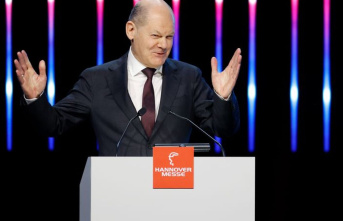Malaysia announces it will reduce chicken exports starting in June due to shortages.
In Asia, India banned exports of wheat, while Indonesia stopped overseas palm oil sales.
This comes at a time when the world is facing the worst food shortage in decades after Russia's invasion Ukraine.
One expert in agriculture raised concerns about the possibility of a rise in so-called "food nationalism" among the governments in the region.
Malaysian consumers have seen the prices of chicken rise in recent months. Some retailers have also placed limits on how much meat they can sell.
Malaysia's Prime Minister Ismail Sabri Yaakob stated Monday that the country would stop exporting up to 3.6 million chickens per month until domestic prices and production stabilize.
He stated that "the government's priority was our own people" in a statement.
The move will be especially devastating for Singapore's neighbor, which has Malaysian imports accounting for about a third of its chicken supply.
Most birds are imported alive before being slaughtered in Singapore.
Later Monday, the Singapore Food Agency encouraged customers to buy frozen chicken. They also moved to discourage panic-buying.
The agency stated that while there might be some temporary disruptions in the supply of chilled poultry, frozen chicken options are still available to help offset the shortfall. We advise consumers to only buy what they really need.
War has a devastating effect
The latest development in the global food crisis is Malaysia's ban on chicken exports to Malaysia.
The World Bank warned last month that record-breaking food price increases could lead to hundreds of millions of people becoming poor and deprived of nutrition.
Ukraine is a major wheat exporter and its production has plummeted since Russia invaded.
This has led to a rise in global wheat prices. This has raised concerns about shortages in countries that rely on exports.
Yuliia svyrydenko was the first deputy prime Minister of Ukraine and said Monday that the international community needed to create a safe passage to allow millions of tons of grain in Ukraine to be released.
Faisal Islam, BBC's economics editor, said that Russia's blocking of Ukraine's food exports was a "declaration of war on global security" and also spoke to David Beasley, the executive director of United Nations World Food Programme.
He stated, "We are already facing a worst food crisis since World War II."
"When you take 400 millions people who are fed by food from Ukraine, and shut it off, and then add fertiliser problems and droughts, food prices, fuel costs, and we're looking at an absolute disaster on Earth," Mr Beasley said.
Is there a 'Food Nationalism'?
After India banned exports, wheat prices rose again in the middle of this month. After a heatwave that ravaged the country, the Indian government made the decision to ban exports of wheat.
Commodity traders were expecting supply from India to make up the part of the shortage from Ukraine, as droughts and floods threatened crops in other major producers.
In recent weeks, palm oil prices have risen after Indonesia, the largest producer of the ingredient, stopped exporting it for three weeks in order to lower local prices. Monday saw the lifting of the ban.
These are examples of food nationalism, according to Sonia Akter (assistant professor at the Lee Kuan Yew School of Public Policy) in Singapore.
She stated that governments impose restrictions like these because they believe they must protect their citizens first and foremost.
She said that "from the 2007-2008 experience with the food crisis, it is likely that more and more countries will follow suit which will increase the crisis as well the food price inflation."
Professor William Chen from Nanyang Technological University in Singapore believes that the export restrictions are temporary and not a full-fledged food nationalism.
"Other countries have imposed food commodity bans but lifted them later," stated Mr Chen, who is the director of the university’s food science technology programme.
"This is a good example of the interconnectedness of the food value chains, [where] no country really can depend on itself to provide all the foods required for their population."












